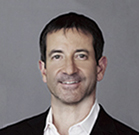When Gilead Sciences ($GILD) struck its hepatitis C supply deal with Indian generics makers, the terms were tight, with provisions designed to keep the knockoff pills in countries where Gilead allows cut-rate pricing. Some state health systems overseas require patients to show IDs to get their meds and present empty pill bottles for refills.
And this is why.
As Bloomberg reports, everyone from individual patients on up to pharmacy benefits managers has been scheming about how to get Gilead's Harvoni and Sovaldi at the lower prices available in other countries--as low as 1% of the U.S. sticker price, the news service notes.
Employers, insurers, and U.S. health programs have lamented their share of the cost of treating U.S. patients with the supereffective--and very pricey--drugs from Gilead. The company argues that the $84,000 list price for Sovaldi and $94,500 for Harvoni are worth it because of the future costs and complications they prevent, including hospitalizations, transplants and liver cancer.
But that argument hasn't made it any easier for many patients to get treatment. Gilead has patient assistance programs to help with their share of the costs, and it has inked discount deals with many payers. But many payers themselves are still restricting access. At last word, Texas was one state whose Medicaid program hadn't funded Sovaldi or Harvoni treatment at all. Many programs--including private insurance plans--still limit treatment to the sickest patients. In other countries, some state-funded systems are rationing treatment, too.
 |
| Medical Tourism Association CEO Jonathan Edelheit |
Now, say hello to hep C tourism. As Jonathan Edelheit, CEO of the Florida-based Medical Tourism Association, told Bloomberg, "I know people who have hepatitis C and the only thing they can think about is getting this drug. There is definitely a high interest in going abroad."
So, companies that set up medical-related trips abroad--which often means plastic surgery or joint replacements these days--are starting to put together channels for hepatitis C treatment. Doctors who'll prescribe to foreign patients, for instance. One Indian company that specializes in sourcing hard-to-find drugs has been getting dozens of calls every day since the first generics rolled out there.
Some patients are doing it on their own, Bloomberg says, using the example of one Australian who jetted to India for treatment in Chennai. A local doctor wrote a script and directed him to a distributor, who sold him the entire course of treatment for $1,000, the news service says.
Others may not need to go that far; the drugs--or products purporting to be Harvoni and Sovaldi, at least--are popping up at online pharmacies, too.
 |
| Gilead's Gregg Alton |
Gilead says it was expecting this sort of thing, and there's little the company can do to prevent it. "We aren't surprised; we knew this was going to happen. This is a reality of having these types of programs," Gilead EVP Gregg Alton told the news service. "As soon as a gray market develops, there isn't much we can do to control it at a pharmacy level."
This isn't the first time that patients have turned to India for lower-cost meds, of course. In 2013, some Chinese smugglers were caught buying India-made cancer treatments and sneaking them into their own country, where oncology drugs are more expensive.
- read the Bloomberg piece
Special Report: Top 15 pharma companies by 2014 revenue - Gilead Sciences